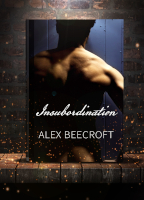I stare into the void
And my characters stare back.
Sometimes when I’m starting a project with all new characters and setting, and I don’t know much about either, I will sit down and ask my heroes to talk to me. Usually they say something along the lines of “Sod off! Don’t be nosy.” And they look at me as any sane person would look at a stranger who was waving a microphone under their nose and encouraging them to reveal the secrets of their psyche.
Sometimes, however, they are unselfconscious enough to give me an answer. In Leofgar’s case I believe it’s because he’s a trained bard and he’s used to giving a performance at the drop of a coin hat. But I could feel the resentment coming off him, nevertheless.
Having got it, it turns out that he does love a bit of alliteration. And he’s remarkably good at telling me loads of stuff without giving me anything useful to work with. Par for the course, really, for one of my characters.
~*~*~*~
“Tell me about yourself, Leofgar,” I say.
He bows his head and the barley coloured curls fall over his forehead. There is an angelic look to the spareness of his face, and in certain lights it would be sweet enough for a woman’s, but for the angles. He is the only one who thinks he resembles a drawn sword.
“What is there to tell? I am, as you see, a wanderer. Blown by fate’s breezes, trimming my sails to the tempest in order to survive it. Yet if you insist on learning of things now forgotten, and uncovering words left unspoken in ages past, I will recall them. I am the son of a farmer. From the fertile fields of Kent, I come. Always, as a boy, would I walk out alone to the boundaries of our land and further, tag along with the tinkers, demand tales of far lands and long forgotten wonders from anyone who would tell them. These I remembered, teaching myself to roll the words over in my mind and search where they might be fitted together to build new cities of thought, wondrous in their conception.
My father was a kind man, but fancied himself cursed with me. When he could catch me, he would beat me. My brother too – older than I. On him fell all the labour and my father’s hope and he bore these burdens like an overloaded ass, kicking and complaining all the while. A sister I had too, she was wed young and had no time for me, but there were small places behind the barrels of her brewing house where I might go and hide from herdcraft, mumbling my mindhoard over to myself.
My mother was well enough. Kind when she remembered me, too busy with garden and grounds, cheese and children, dairy and drudgery to set me to work. So when Anna came the first year and I could not be prised from his presence, I think she knew how my wyrd had been woven.
Anna, in those old days, – I am wordless when I think on him, all my subtlety reduced to a smile. When he came, I found at last a fellow, one at whose shoulder I could stand, knowing his mind. I found a well full of the water of which I had been parched, I gulped down his stories greedily and dogged his steps. When he left I begged him to let me go with him, but he would not. "Next year," he said, "If you are of the same mind." But he made me a flute from a cow’s leg-bone, and left me to learn to play. By the next year I could play it and make my own. I had remembered all his tales and told them back to him, and I had learned to make little doggerel rhymes of my own in praise of my family and friends. This did not earn me any break in work or beatings, but I was proud.
That year he stayed at our steading for two weeks, beginning to teach me the great tales. But he would not take me with him. By the third year I had grown tall enough, and strong, that he could not carry me back. That year I went with him. I have been a wanderer ever since.”
